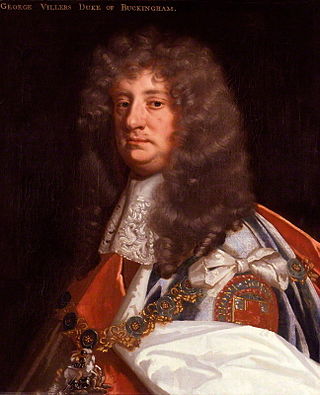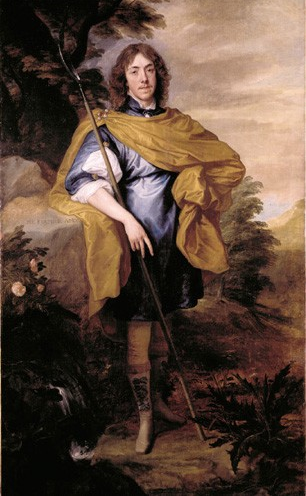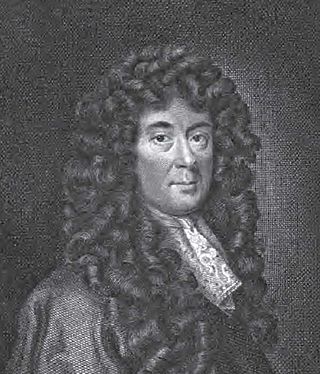Related Research Articles

George Villiers, 2nd Duke of Buckingham, 20th Baron de Ros, was an English statesman and poet who exerted considerable political power during the reign of Charles II of England.
This article contains information about the literary events and publications of 1690.

James VI and I was King of Scotland as James VI from 24 July 1567 and King of England and Ireland as James I from the union of the Scottish and English crowns on 24 March 1603 until his death in 1625. Although he long tried to get both countries to adopt a closer political union, the kingdoms of Scotland and England remained individual sovereign states, with their own parliaments, judiciaries, and laws, both ruled by James in personal union.

Sir Henry Wotton was an English author, diplomat and politician who sat in the House of Commons in 1614 and 1625. When on a mission to Augsburg, in 1604, he famously said, "An ambassador is an honest gentleman sent to lie abroad for the good of his country".
Alexander Seton, 3rd Earl of Dunfermline was an Earl in the Peerage of Scotland. He succeeded his father, Charles Seton, 2nd Earl of Dunfermline, in 1672. Alexander was a younger son, but his older brother Charles had predeceased his father shortly before, in a naval battle of the Third Anglo-Dutch War. As a peer, he was entitled to sit in the Parliament of Scotland. He had no children, and upon his death in 1677 the title went to his brother, James Seton, 4th Earl of Dunfermline. The title became extinct with James, who was outlawed in 1690 after fighting in the Battle of Killiecrankie, and died without heirs in 1694.
John Carmichael, 1st Earl of Carmichael, known as Lord Carmichael between 1672 and 1701, when he was created the 1st Earl of Hyndford, was a Scottish nobleman and politician.

Sir Charles Augustus Murray PC KCB was a British author and diplomat.

Sir Christopher Yelverton was an English judge and Speaker of the House of Commons.
Thomas Dring was a London publisher and bookseller of the middle seventeenth century. He was in business from 1649 on; his shop was located "at the sign of the George in Fleet Street, near St. Dunstan's Church."

Lord George Stewart, 9th Seigneur d'Aubigny was an Anglo-Scottish nobleman of French descent and a third cousin of King Charles I of England. He supported that king during the Civil War as a Royalist commander and was killed, aged 24, at the Battle of Edgehill in 1642.

Sir George Mackenzie of Rosehaugh was a Scottish lawyer, Lord Advocate, essayist and legal writer. He was nicknamed Bloody Mackenzie.
Anne Shadwell was an English stage actor of the seventeenth century. She was one of the first English actresses to appear on stage following the Restoration She was one of six actors recruited in 1660 by William Davenant for the new Duke's Company, acting under her maiden name Anne Gibbs. Sometime between 1663 and 1667 she married the playwright Thomas Shadwell with whom she had four children. While some sources have her acting late into the century, it may be she effectively retired with the formation of the United Company in 1682. Her appearances had decreased since 1672. Following her husband's death in 1692 she was left the bulk of his estate. She had an investment in the Drury Lane Theatre in 1709, when she joined a petition to Queen Anne by the manager Christopher Rich, but nothing is known about her after this point.

The 1594 trial of alleged witch Allison Balfour or Margaret Balfour is one of the most frequently cited Scottish witchcraft cases. Balfour lived in the Orkney Islands of Scotland in the area of Stenness. At that time in Scotland, the Scottish Witchcraft Act 1563 had made a conviction for witchcraft punishable by death.
Matthew Medbourne was an English stage actor and occasional playwright of the Restoration era. A long-standing member of the Duke's Theatre, Medbourne was a victim of the Popish Plot scare and died in Newgate Prison.
The Fatal Jealousy is a 1672 tragedy by the English writer Henry Nevil Payne. It was staged by the Duke's Company at the Dorset Garden Theatre with a cast that included William Smith as Don Antonio, Matthew Medbourne as Don Gerardo, John Crosby as Don Sebastian, Samuel Sandford as Jasper, John Young as Don Francisco, Henry Norris as Servant, James Nokes as Nurse, Anne Shadwell as Caelia, Mary Betterton as Eugenia, Margaret Osborne as Flora.
John Young was an English stage actor of the seventeenth century. He was active as a member of the Duke's Company during the Restoration Era, appearing at Lincoln's Inn Fields and then at the Dorset Garden Theatre when the company relocated. While not much is known about his background, he was repeatedly in debt during his acting career. In 1667 he stood in for Thomas Betterton after he fell ill during the run of Macbeth appearing as the title role. Samuel Pepys described him as "a bad actor at best".
Margaret Osborne or Osborn was an English stage actress of the seventeenth century She was a long-standing member of the Duke's Company from 1671, acting at Lincoln's Inn Fields and the Dorset Garden Theatre. She went to Dublin to work at the Smock Alley Theatre in 1677, but returned to the Duke's Company around two years later She subsequently joined the merged United Company in 1682 and was still acting in the 1690s.
John Crosby was an English stage actor of the Restoration Period. He first recorded performance is in 1662 when he appeared in Ignoramus at Whitehall Palace, likely as a child actor. It was further eight years before he was solidly established in the Duke's Company in 1670 beginning with The Forc'd Marriage by Aphra Behn. He became a regular with the company over the following decade, often playing young lover roles. He retired from the stage in 1679 and later became a justice of the peace for Middlesex. He died on 8 April 1724 and was buried in St Sepulchre.
References
- ↑ "Judicial Torture, the Liberties of the Subject and Anglo-Scottish Relations, 1660-1960, by Clare Jackson, in Anglo-Scottish Relations from 1603 to 1900, ed. by T. C. Smout (Oxford University Press and British Academy, 2005) pp.96-97
- Paul Hopkins, ‘Payne, Henry (d. 1705?)’, Oxford Dictionary of National Biography, Oxford University Press, September 2004; online edn, January 2007
- The Fatal Jealousie (1673), by Henry Nevil Payne, edited by Willard Thorp. The Augustan Reprint Society (1948).